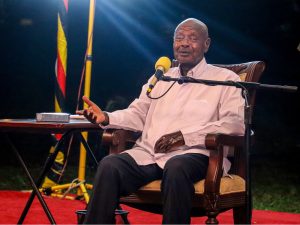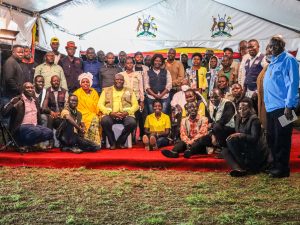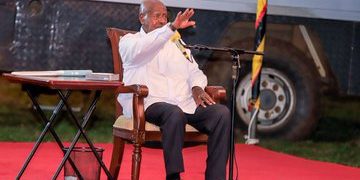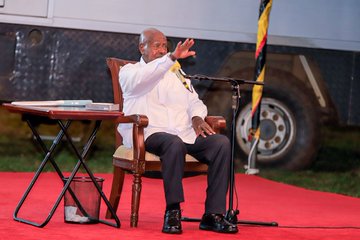President Yoweri Kaguta Museveni has assured Ugandans that insecurity and cattle rustling in Karamoja have been permanently defeated, declaring that criminals will no longer be a threat under the National Resistance Movement (NRM) government.
The President made the remarks on Wednesday, October 29, 2025, while addressing journalists at Morulinga State Lodge in Napak District, during his ongoing campaign trail ahead of the 2026 general elections.
Tracing the historical roots of insecurity in Karamoja, President Museveni attributed the rise of cattle rustling to systemic failures in earlier administrations and corruption within local security structures. He noted that upon his direct intervention, the government restored order, defeating rustlers who had destabilised the region.
“But when we came, there was corruption in the army, including failure to pay the vigilantes. When we arrived in Barlegi, we tackled the real problems, and the army defeated them,” he said.
He explained that the Uganda People’s Defence Forces (UPDF), working closely with local communities, restored security. During a period when the UPDF 5th Division was in training, some rustlers attempted to exploit the temporary gap but were swiftly neutralised.
“They learned a lesson — anyone who tries will be defeated as long as the NRM is in charge,” President Museveni emphasised.

The President stressed the importance of community policing and improved communication at the grassroots level. He noted that some sub-counties in Karamoja still lack sufficient police presence, despite directives for at least 18 officers per sub-county.
“It’s not difficult to deal with these criminals, especially now that we have a good telephone network. Every sub-county should centre security around the police station, and people must report incidents immediately,” he said, adding that police must be equipped with motorcycles, pickups, surveillance drones, and even police dogs to ensure swift responses.
Modern surveillance technology has made it nearly impossible for rustlers to hide. “Even if they stay in the bush, their phones become death traps. We can locate them easily,” the President warned.
On national politics, Museveni credited the NRM’s enduring popularity to its ideological foundation: patriotism, Pan-Africanism, socio-economic transformation, and democracy. Recounting Uganda’s early political chaos in the 1960s, he explained that sectarianism and coalition politics had sown division that later erupted into conflict.

Linking the NRM’s philosophy to its development agenda, he said Uganda’s transformation rests on household wealth creation and value addition through agriculture and industry.
He outlined the “four-acre model plan,” urging every family to engage in commercial agriculture: Acre one: coffee, Acre two: fruits, Acre three: pasture for zero-grazing cows and Acre four: food crops like cassava. Backyard poultry, piggery, and fish farming in wetlands can complement this model.
President Museveni also highlighted industrialisation, particularly agro-processing industries to add value to agricultural produce, and emphasised Karamoja’s potential for mineral-based industrial development. Tourism, he noted, will further complement agriculture and mining, leveraging the region’s natural beauty and culture.
Finally, the President reiterated that Uganda’s progress is linked to Africa’s unity and economic integration, emphasising that the NRM’s vision extends beyond national borders to promote a self-sustaining African market.











